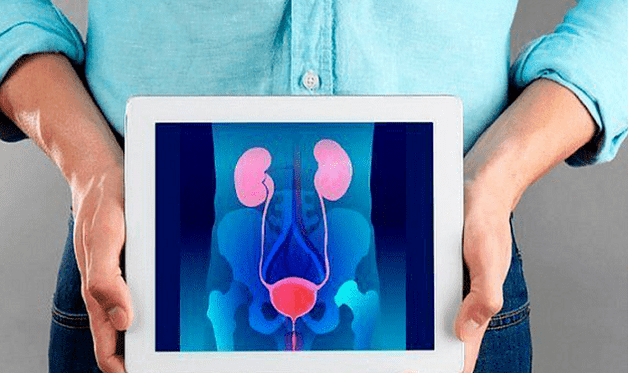Prostatitis is a common urinary tract disease. For example, the frequency of visits to a doctor for this reason in the United States is 1% (out of all doctor visits).

Prostatitis is a condition caused by damage to the prostate gland causing inflammation. It is a male-specific disease that can begin in almost any age over the age of 20.
Types of prostatitis
There are the following main forms of the disease:
- acute prostatitis;
- chronic bacterial prostatitis;
- bacterial prostatitis;
- chronic prostatitis (chronic pelvic pain syndrome).
Usually, prostatitis is caused by exposure to bacteria or viruses. People who are debilitated by other medical conditions (including chronic illnesses) are especially susceptible to it; Prostatitis can also occur due to stress, stress, hypothermia, bad habits (alcohol addiction), i. e. all factors that reduce the body's ability to defend itself. Therefore, prostatitis is divided into infectious and non-infectious.
Symptoms of Prostatitis
The main signs of the disease include:
- pain in the lower back and abdomen, lower back, perineum, pelvis, groin, scrotum;
- increased urination (including nocturia);
- burning sensation when urinating;
- difficulty urinating, cloudy urine;
- muscle and joint pain;
- asthenia, weakness, increased fatigue;
- headache;
- in the acute form of the disease - fever.
Your doctor will also note swelling and pain of the prostate gland.
Prostatitis not only seriously affects the quality of life, but can also stimulate the development of other diseases and be life-threatening.
Important! These symptoms are the reason for urgent medical attention. Lack of treatment for acute prostatitis can lead to the development of chronic forms of the disease, as well as cystitis, pyelonephritis and even sepsis.
Which drug is considered the most effective in the treatment of prostatitis in men?
The list of drugs for the treatment of prostatitis includes the following drug groups:
- antibiotics;
- antipyretics;
- non-steroidal anti-inflammatory drugs;
- analgesic;
- plant products.
Important! The physician is responsible for prescribing medication for prostatitis. Treatment of prostatitis necessarily includes the use of antibacterial drugs, but due to the special structure of the capillaries of the prostate gland, not any antibiotic can penetrate the prostate glands. its tissue. A competent choice of type, dosage, duration of use is required for the treatment of prostatitis with this drug to be effective.
The most effective regimens for the treatment of prostatitis include drugs based on medicinal herbs as well as vitamin and mineral complexes that increase the body's resistance:
- Tablets contain extracts from medicinal plants such as the herb St. John's wort, canadian herb goldenrod, licorice root, rhizome with Echinacea purpurea root with a total rutin flavonoid content of 5%. The drug has anti-inflammatory, bacteriostatic, pain-relieving, urinary-clearing effects, and increases the body's resistance.
- Capsules containing alcohol extracted from prickly pear, have anti-inflammatory effects, reduce puffiness, facilitate urination, have selective anti-hormonal properties related to prostate, have no effect onhormonal balance and does not cause a decrease in potency. The drug comes in packs of 30 and 90 tablets.
- a vitamin and mineral preparation containing the most important vitamins for men's health (D3, tocopherol, niacin) and zinc, as well as the amino acid L-arginine, which improves blood circulation in the genitals, eleutherosides (to boost immunity) and herbal extracts complex (yohimbe bark, Siberian ginseng root, damiana leaf, large-flowered mountain goat weed, muira puama, suma root, cayenne pepper).
Important! Phytoprepines preparations are an effective adjunct to antibacterial therapy; Consult your doctor about their use.
Prostatitis is a serious problem for modern men. It is necessary to closely monitor health status, eat in moderation, lead an active but not tired lifestyle. If you experience symptoms of prostatitis, be sure to seek medical attention; Your doctor will prescribe all the medicines you need to effectively treat and support your body.































